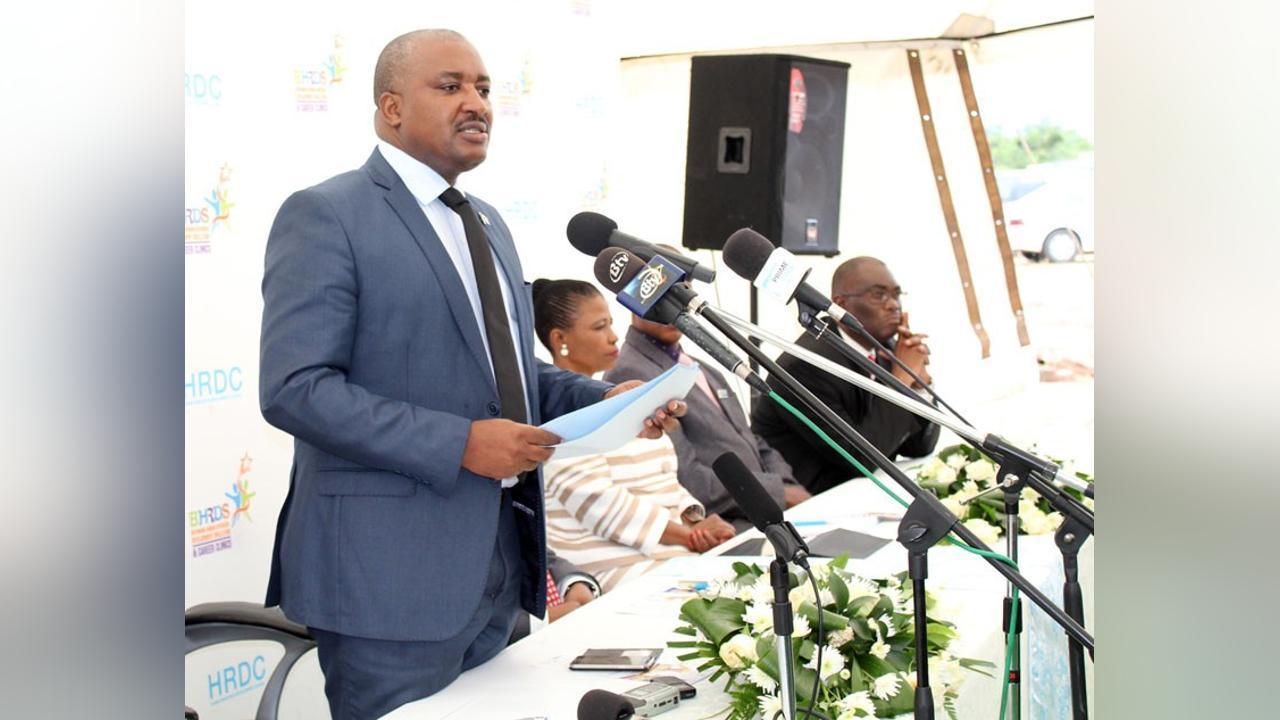Africa-Press – Botswana. There is need to develop robust strategies and initiatives to reverse the effects of climate change such as rangeland rehabilitation, using resilient cattle breeds, grass reseeding and sustainable grazing.
Speaking at the Sandveld Ranchers Association Farmers Day at Kaka Ranches on April 27, Minister of Agriculture, Mr Fidelis Molao said the carrying capacity and stocking rates of ranches were a concern.
He said some farmers were underutilising their ranches whilst others were overstocking.
He advised farmers to carry out periodic range assessments to determine their carrying capacity, noting that current carrying capacities of between 11 and 16 hectares per cattle had been there since 1978.
“Our farming systems as ranch owners, continued droughts and climate change have led to the degradation of rangelands leading to reduced capacities,” he said.
He said robust strategies and initiatives were needed to reverse the effects, adding that the livestock sector was characterised by low productivity leading to a decline in cattle populations, including at the Sandveld ranches.
In an effort to improve productivity, he said government introduced the beef cluster initiative with the aim to restore the livestock sector as the main pillar of economic activity and employment. Mr Molao said coordinated efforts to transform the beef industry from traditional farming to commercial driven were being adopted in the rollout of the initiative.
He noted that government had partnered with the World Bank Group to develop an investment programme in the beef cluster agenda, and that a quality guarantee scheme was being developed through the assistance of US-AID and rolled out for adoption by farmers.
He said notable achievements of the initiative included the capacity building of farmers, herdsmen and extension staff as well as the development of the beef cluster strategy which promoted the production of Botswana grass-fed beef.
He added that the beef cluster was focused on four areas of upgrading production, promotion and marketing, research and technology transfer as well as public coordination.
He noted that grass-fed beef awareness activities were carried across different platforms countrywide, and that a training programme had been developed where farmers and stakeholders were trained on grass-fed concepts and the regenerative grazing system. He revealed that government had partnered with People and Nature Trust to implement the regenerative concept at a training model farm in Ghanzi.
Government, he said, was also working with Green Climate Fund in an eight year project to promote regenerative grazing in communal areas.
Chairperson of the Sandveld Ranchers Association, Mr Gabolekwe Tlogelang said there was need for continuous stakeholder interactions.
He said their concern in the Sandveld farming area was infrastructure, saying they needed roads to access production areas and a market. sHe said they also needed telecommunications to facilitate marketing and livestock management through IT connectivity.
For More News And Analysis About Botswana Follow Africa-Press






